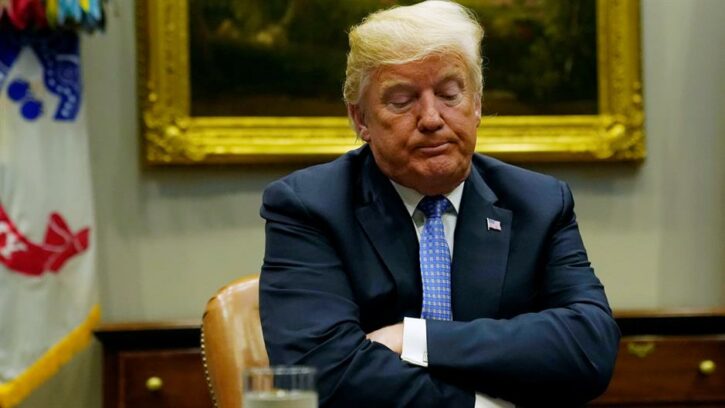
US President Donald Trump’s protectionist policies may lead to a deep slowdown in the economy, particularly because these trade skirmishes coincide with rising interest rates, Ronald Temple, head of US Equity for Lazard Asset Management, told CNN Business.
“A recession in the near-term is not inevitable, but the risk of one by 2020 has increased substantially in the past few months,” Temple said. “Take trade wars off the table and that significantly reduces the risk of recession.”
But it is likely that the United States is overestimating how much China needs to import from America, he said.
China has more options than it once did, and the Trump administration's hardline stance makes a prolonged stalemate more likely.
“The days where we could have a trade agreement where China just buys more US stuff are probably behind us,” he said. “It's difficult to find how China and the United States come to a common middle ground on trade.”
Temple said that the United States – as well as the rest of the world for that matter – do have legitimate grievances with China, particularly when it comes to China's intellectual property theft and stringent restrictions on foreign companies doing business there.
That's why Temple is worried about the Trump administration's tough treatment of allies.
The United States can deal most effectively with China by working with Europe, Canada, Australia, Japan and the rest of the developed world on a unified stance, Temple said.
“If it's China versus everyone then China has to figure out way to be more accommodative,” Temple said. “But we've fragmented a potential coalition instead of building one.”
He said recent agreements with Mexico and Canada might not have been enough to completely soothe tensions caused by auto, steel and aluminium tariffs.
Katie Nixon, chief investment officer for Northern Trust Wealth Management, said in a recent report that, while she's not expecting a recession anytime soon, her outlook could change because of “the trade skirmish with China and fears that it will evolve into an all-out trade war.”
Nixon, like Temple, said that the combination of a nasty trade spat with China and the Fed's rate hikes could jeopardize the US economy's impressive growth streak.
“The Federal Reserve is in the process of unwinding one of the biggest monetary experiments in US history,” she said, referring to super-low interest rates for the past decade.
That means there is a real risk that Fed could raise rates too quickly or too much. That's likely the reason why President Trump has been criticizing the central bank so much lately.
Follow N1 via mobile apps for Android | iPhone/iPad | Windows| and social media on Twitter | Facebook.




